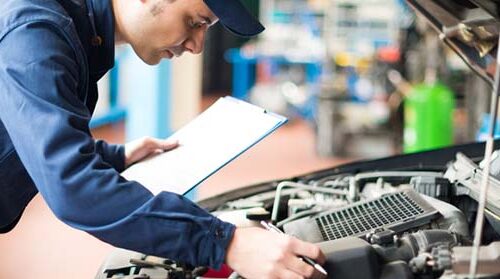EVs experience higher MOT failure rates

- 18/08/2022
- Posted by: Alan Feldberg
- Category: News
Electric vehicles have higher MOT failure rates than equivalently aged hybrid and petrol vehicles.
According to new research by BookMyGarage, DVSA data showed electric vehicles have a MOT failure rate of 11.4% for three-year-old vehicles, which rises to 21.8% for six-year-old vehicles.
At 11.2%, three-year-old hybrid vehicles are marginally less likely to fail but six-year-old vehicles are some 29% less likely to fluff their MOT than EVs.
Petrol vehicles have a failure rate of 10.7% after three years, meaning they’re six per cent more likely to pass than electric vehicles of the same age.
The study by the MOT and servicing price comparison site found diesel vehicles to be the worst performing fuel type, with 15.1% of three-year-old vehicles failing. However, six-year-old diesels shared a similar failure rate to electric vehicles at 21.4%.
Karen Rotberg, co-founder of BookMyGarage, said: “One of the benefits of driving an electric vehicle is the reduction in maintenance required. Service intervals are typically longer than the interval for many petrol or diesel vehicles, and fewer components or fluids need replacing during the service itself. However, this doesn’t mean electric vehicles are immune to safety defects. In fact, because electric vehicles are generally much heavier than vehicles with internal combustion engines, wear on some components – such as tyres – can be greater.”
Tyres are responsible for 22% of all electric vehicle MOT failures, compared to just 12% for all fuel types.
Rotberg said: “With electric vehicles requiring less maintenance, it’s likely they’re making fewer visits to workshops, which means fewer safety inspections are being carried out to check for potential defects. This data highlights the importance of regular servicing and safety checks on electric vehicles, even though their service schedules are simpler, to ensure any defects are found before they become dangerous.
“This data isn’t a reflection of electric vehicles being any less reliable than other fuel types, but with them generally making fewer visits to garages it does highlight the importance of owners carrying out regular checks to ensure their vehicle is always in a roadworthy condition.”



